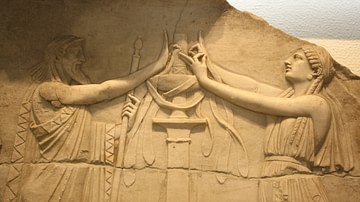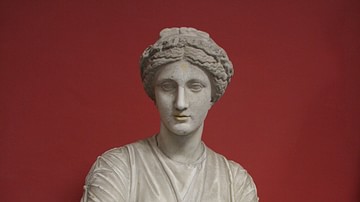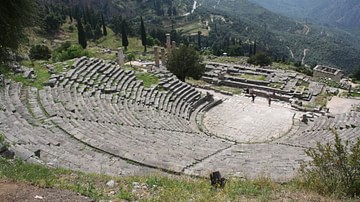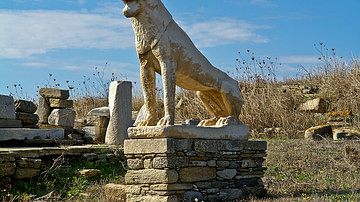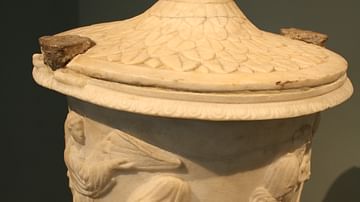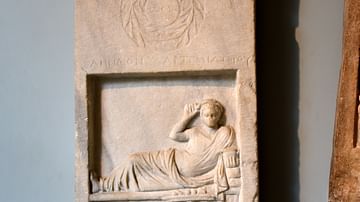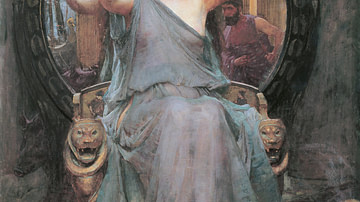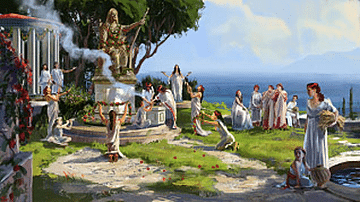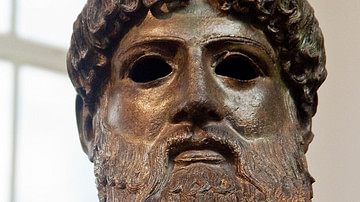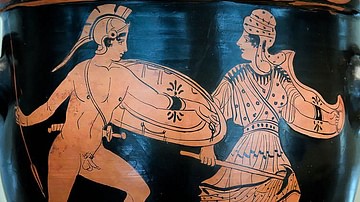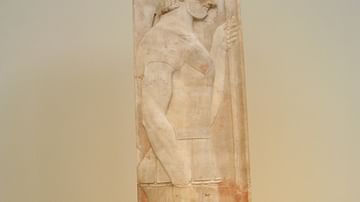The ancient Greeks believed the gods were an ever-present influence on humanity, for both good and bad. The belief that these gods might be influenced in turn is evidenced in the widespread building of temples dedicated to them as well as the frequent ceremonies, festivals and sporting games held in their honour. In this collection of resources, we examine the general features of the Greeks' religion from its main gods and oracles to rituals, sacrifices and priesthoods. We look at some of the famous sacred sites that attracted pilgrims from across Greece such as Delphi and Delos, the use of curses and magic, and the mystery cults such as those at Eleusis.
Although the historical record reveals much about formal religious occasions and ceremony, we should remember that Greek religion was in fact practised anywhere, at any time, by private individuals in a very personal way. Not only temples but also the hearth in private homes was regarded as sacred, for example. Individuals could also visit a temple anytime they wanted to and it was customary to say a prayer even when just passing them in the street. People left offerings such as incense, flowers, and food, no doubt with a hopeful prayer or in gratitude for a past deed.
